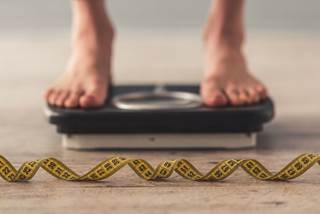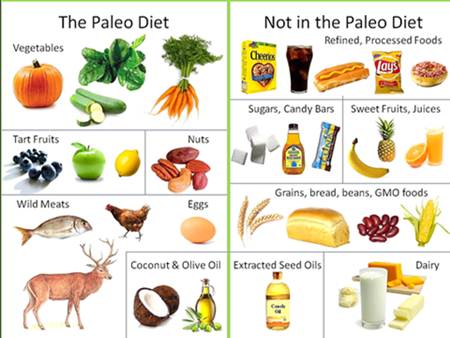
Diet Advice You Need to Forget When You Turn 40
Your body changes as you age — there’s no way around it. While the weight loss and health advice you received in your younger years may not have had a huge impact, it could have a larger effect once you get older.
Your nutritional needs may change, too. Aging can amplify a number of health concerns, including bone density, skin health, and metabolism changes. It’s crucial that you support your body with proper nutrition as you get older to protect yourself against various medical problems. But the instructions and recommendations for what’s “healthy” can be really hard to follow. For one, they often contradict each other.
And at the same time, diet advice has changed a lot in recent years; the advice you heard when you were younger may not be as sound as you thought. Think about it — people used to think smoking a cigarette was healthier choice than eating a snack. What other old pieces of advice are better left behind? Here’s some diet advice you need to forget when you turn 40 — or even sooner, if you can.
Squeeze in an early morning workout

A common piece of advice is to work out before breakfast — and unless you’ve retired or wake up particularly late, this often means missing out on precious hours of sleep to make it to the gym. Too many people suffer serious health consequences simply because they don’t make sleep a priority. Adults 18 to 64 require seven to nine hours of sleep each night. There are lots of terrifying things that can happen to your body when you’re sleep-deprived — some of which include an increase in your risk of heart disease, stroke, and depression. Mitigate these risks as you age by putting sleep first. Your workout can wait.
Skipping meals saves calories
When you skip even one meal, it can feel stressful for your body. Your metabolism, blood sugar, and other body systems are all affected. Plus, “calories in, calories out” is totally bogus! This mindset on health fails to account for the effect of your metabolism, along with whether or not you’re receiving nutrients you need from your food. A high-calorie, nutrient-dense breakfast will likely do you more good than a tiny breakfast with little to no nutritional value. And while breakfast is the most important meal of the day, they’re really all important. Don’t skip breakfast, lunch, or dinner.
Avoid dairy
Going dairy-free is all the rage, but unless you’re lactose intolerant there’s really no need. And if you’re in your 40s, omitting dairy products could do more harm than good. Your bone mass reaches its peak when you turn 30. If you skimp on dairy products such as cheese and yogurt, you could miss out on calcium that could benefit your bones, putting you at greater risk for osteoporosis and joint pain. Dairy also contains a good amount of vitamin D, which can keep your skin, hair, and overall mood healthy as you age. Before you quit dairy, read up on what it really does to your body to make this diet change.
Do more cardio

Roughly half of all women over 50 suffer hip, wrist, or spine fractures at least once in their lifetime. Some bone fractures are relatively benign, but others could put you in a wheelchair for good. Your likelihood of these injuries increases when you engage in a large amount of high-impact cardio. High-impact exercise includes things like running, playing sports, and performing high-intensity interval training (HIIT). Many doctors recommend walking or other low-impact movements for people over 40. But you don’t have to stick to those exercises if you don’t want to. Strength training is another option — one that could actually improve your bone health, according to Harvard Health Publishing.
Don’t eat out at restaurants
The fear that all restaurant food is ridiculously unhealthy is somewhat misplaced. While some restaurants overdo it on the salt, butter, and additives, others serve delicious and wholesome meals made with quality ingredients. The trouble is when we generalize — not all restaurant food is bad for you. And even when the food does contain a load of salt and fat, it’s important to remember that physical health isn’t the only factor to consider. A huge part of your health involves your social life. In fact, adults who are social and have meaningful relationships are scientifically more likely to live longer. Loneliness is correlated with an increased risk of death. Staying home from dinners and events because you’re watching your weight can become isolating, barring you from health-promoting social activities like conversation, connection, and laughter.
Weigh yourself every day

Want to feel less insecure about your body? Weighing yourself is not the way to do it. No matter your age, submitting yourself to the scale every day can detract from your health. According to a study from the University of Minnesota, 80 percent of women who weighed themselves reported engaging in extremely dangerous weight-control behaviors. Though behaviors such as skipping meals and exercising to burn off food may seem innocuous, they can lead to escalated attempts at weight loss and serious health consequences. Additionally, your weight is likely to fluctuate with more intensity and frequency as you get older. As your hormones shift with age, your weight may shift, as well.
Cut carbs
Fiber is an absolute must for anyone over 40. Most women require between 25 and 30 grams of soluble fiber every day to help lower cholesterol; your cholesterol is more likely to increase as you age. These soluble fibers are often consumed from carbs — whole grains such as bread, pasta, and oats are rich with them. In addition to digestive issues, there are other significant effects of quitting carbs that you should consider.
Skip dessert
Just because you’re getting older doesn’t mean you should never eat sugar for fear of becoming diabetic. The risk of eating sugar comes from eating sugar in excessive amounts. Sugar in moderate or small amounts will probably not be harmful to your health. If you are diagnosed as pre-diabetic or have another health condition that makes sugar a problem, your doctor will tell you what to do. Weddings, birthdays, anniversaries, and other important celebrations of life’s milestones all involve sweets of some kind. If you withhold yourself from eating the dessert, you’re likely to feel deprived, frustrated, and removed from the experience.
Try paleo, Whole 30, or another fad diet

While these diets claim to have all the answers for solving your health problems, the scientific evidence behind them is shaky at best. These diets often cut out entire food groups, which could put you at risk for a nutrient deficiency if you aren’t careful. Additionally, fad diets are often not sustainable and could lead to extreme diet and weight fluctuations.
Don’t eat before bed

Though many people warn against nighttime eating due to the idea that you don’t need as much energy while you sleep, the science says otherwise. Your metabolism is still revving even after you fall asleep. The studies that link nighttime eating to weight gain may actually have more to do with the amounts that people are eating than with the time of day. Additionally, not eating enough before you go to bed can result in insomnia. The consequences of sleep-deprivation are nothing to take lightly; if you’re hungry before bed, eat something.
Try a juice cleanse
If you’re going on a beach vacation or have a cruise coming up, you might be tempted to go on a juice cleanse or other crash diet to try to shed some last-minute pounds. But even if it helps you lose weight in the short term, crash dieting is a really bad idea. According to the Obesity Action Coalition, some risks of crash dieting include poor nutrition, gallstones, dehydration, hair loss, and abnormal heart rate. These extreme diets can also wreak havoc on your metabolism, which is already slowing down as you age.
Source:-MSN

Leave a Reply